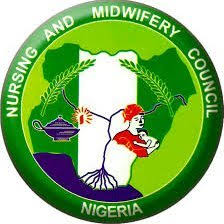Nigeria’s Health Revolution Begins: FG Launches High-Level Policy Dialogue to Fix Healthcare Financing
The Federal Government of Nigeria is set to host a groundbreaking National Policy Dialogue on Healthcare Financing and Universal Health Coverage (UHC) from September 1–4, 2025 in Abuja. This pivotal event, organized by the Federal Ministry of Health and Social Welfare (FMOHSW), aims to reshape the future of healthcare access in Nigeria under the theme:
“Reimagining the Future of Health Financing in Nigeria.”
Who’s Coming to the Table?
The dialogue will bring together:
- Senior government officials
- Policymakers
- Development partners
- Civil society organizations
- Academia
- Private sector leaders
Their mission? To explore sustainable, inclusive models that ensure equitable access to healthcare for all Nigerians.
Why It Matters
This initiative builds on Nigeria’s commitment made at the 2019 African Leadership Meeting in Addis Ababa, where leaders pledged to boost domestic health financing and strengthen resilient systems across Africa.
According to Professor Muhammad Ali Pate, Coordinating Minister of Health and Social Welfare:
“At the heart of our next phase of transformation is a simple but urgent mission: to save lives, reduce suffering, and deliver health for all Nigerians—without leaving anyone behind.”
He emphasized that the government is aligning resources and partners through the National Health Sector Renewal Investment Initiative, the Sector-Wide Approach, and a unified Strategic Plan focused on equity, accountability, and sustainability.
What’s on the Agenda?
Dr. Kelechi Ohiri, Director-General of the National Health Insurance Authority (NHIA), noted that the dialogue will:
- Review findings from the State of Health Financing Report
- Build consensus on feasible strategies to expand and sustain domestic health financing
- Accelerate progress toward Universal Health Coverage
The outcomes of this dialogue are expected to shape the next phase of Nigeria’s healthcare reforms and unlock a future where no Nigerian is denied care due to financial constraints.




